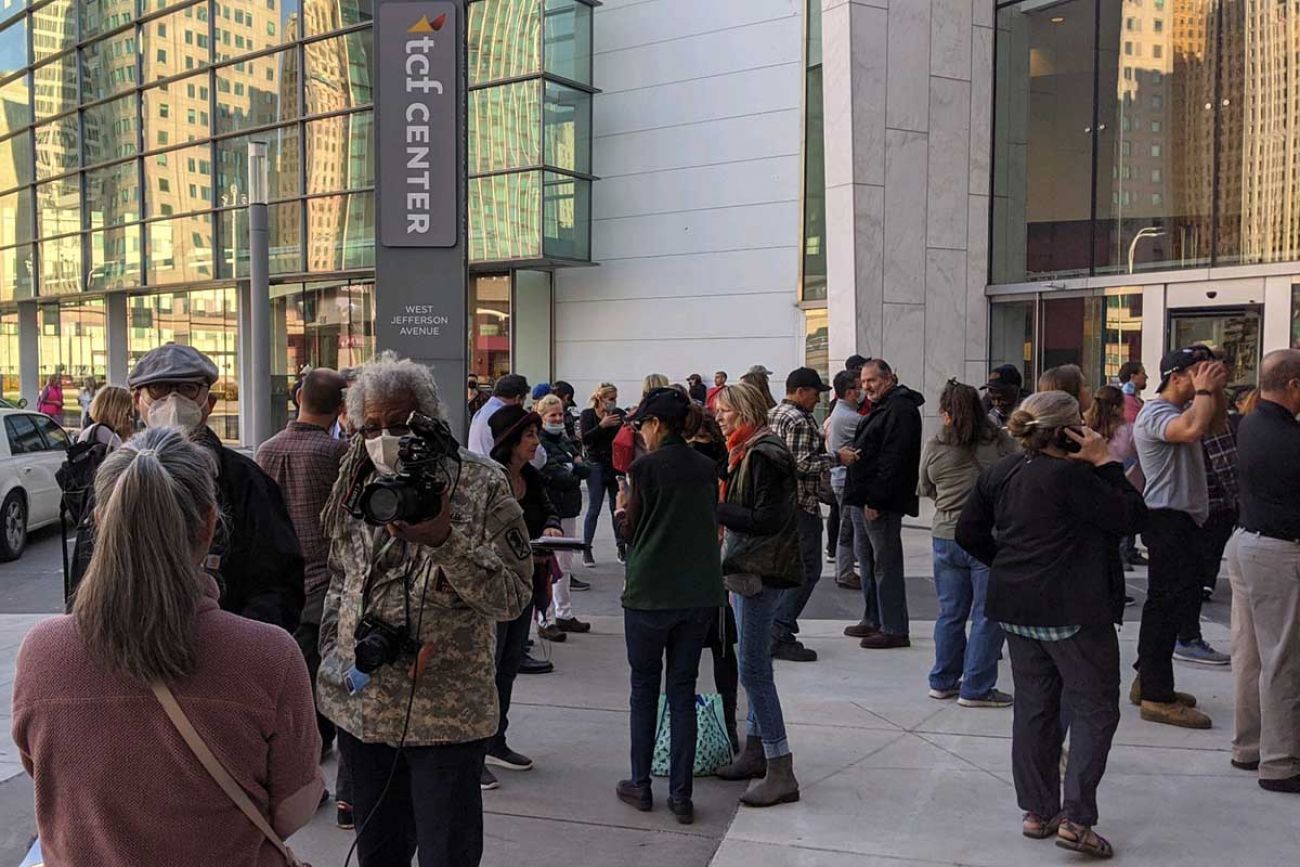Michigan Democrats want prison time for those who harass election workers

- Michigan clerks and election workers say they’ve been berated and faced threats for doing their jobs
- Now, Democratic lawmakers want to make harassing election workers a felony punishable by up to five years in prison
- Critics say laws on the books are sufficient and fear a chilling effect against criticizing election workers
Michigan election workers and officials say they’ve endured threats to hang them from a tree, harassing phone calls filled with foul language and hostile behavior such as being followed near their homes while doing their jobs.
Under legislation introduced in the state House, intimidating, threatening, or harassing an election worker could be prosecuted as a criminal offense, up to a felony.
“Elections cannot take place without election workers. That's the bottom line,” bill sponsor Rep. Kara Hope, D-Holt, said this week at a committee hearing.
Related:
- Muskegon fake voter applications probed in 2020, referred to FBI, Nessel says
- Michigan moves to adopt early voting; Republicans say efforts go too far
- Michigan begins ‘new chapter for voting.’ What changes are coming in 2024
Election work is poorly paid and temporary, she said, and those who do it as a civic duty are “not willing to risk their own safety or their own peace of mind.” Hope said the legislation is timely because the state is adding in-person early voting, which will require more workers.
Under House Bill 4129, a person intimidating an election worker or preventing them from doing their job to the point that they would “feel terrorized, frightened, threatened, harassed, or molested” could be criminally charged, while House Bill 4130 would amend sentencing guidelines to make a habitual offense of intimidating or harassing an election worker a felony. If found guilty, violators could spend up to five years in prison.
In March, election officials testified about threats they experienced during and after the November 2020 election, including Detroit city clerk Janice Winfrey, who told lawmakers that someone shot at a staff member from her office.
Michigan is among 10 states where the risk of election disruption is high due to false allegations and “anti-voter” sentiments and activity over the past few years, according to the Brennan Center for Justice at New York University.
If passed, Michigan will join 12 other states that have similar laws protecting election workers.
Critics of the legislation in Michigan argue that the activities penalized under the new legislation are already illegal and the law would have a chilling effect on free speech.
“Michigan absolutely cannot start making people felons if someone else says their feelings were hurt,” Sheree Ritchie, a member of Pure Integrity Michigan Elections group said at Tuesday’s hearing.
“This is exactly what HB 4129 would allow. This bill goes too far.”
Secretary of State Jocelyn Benson, testifying via Zoom at Tuesday’s hearing, said she has “experienced a lot of these threats firsthand,” including a high-profile December 2020 incident when people protested outside her home.
Benson said the threats and harassment reported by election workers have been fueled by a coordinated misinformation campaign aimed at Michigan and other key battleground states, including Arizona, Georgia, Nevada, Pennsylvania, and Wisconsin.
The new bills “will ensure real accountability for anyone who harasses an election clerk,” she said.
Citing a Brennan Center for Justice survey released in April, Benson said 73 percent of local election officials reported feeling that threats had increased in recent years.
Last month, the U.S. Department of Justice announced charges against three suspects in separate cases involving threats against election officials in Michigan, Arizona and Georgia.
In Michigan, a 37-year-old Indiana man was charged for making threats against then-Rochester Hills clerk Tina Barton. The man faces one count of making a threatening interstate communication, a crime punishable by five years in prison. A jury trial is set for Oct. 10.
Lata Nott, senior legal counsel for the nonprofit Campaign Legal Center, which advocates for voting rights, said election workers are “on the receiving end of an onslaught of threats” and stalking that has escalated into an undeniable crisis.”
Oralandar Brand-Williams is a senior reporter for Votebeat in partnership with Bridge Michigan. Contact Oralandar at obrand-williams@votebeat.org.
See what new members are saying about why they donated to Bridge Michigan:
- “In order for this information to be accurate and unbiased it must be underwritten by its readers, not by special interests.” - Larry S.
- “Not many other media sources report on the topics Bridge does.” - Susan B.
- “Your journalism is outstanding and rare these days.” - Mark S.
If you want to ensure the future of nonpartisan, nonprofit Michigan journalism, please become a member today. You, too, will be asked why you donated and maybe we'll feature your quote next time!




